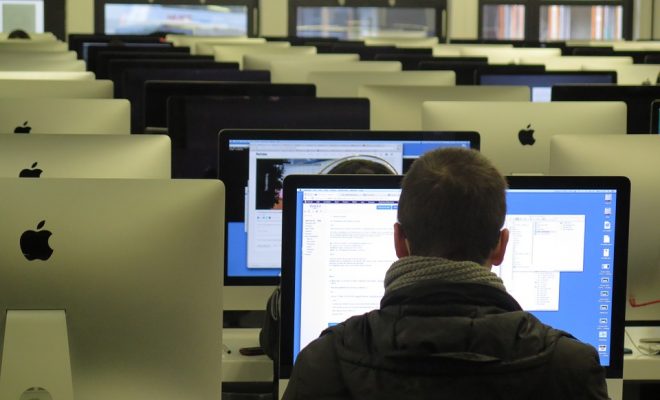Why Low-income Kids Are Nowhere to be Found in STEM

Low-income students are substantially underrepresented in STEM. Whether it’s high school graduates or postsecondary graduates, reports show that low-income students are entering STEM programs at a much lower rate than their high-income counterparts.
Part of the problem is the fact that many low-income families can’t even afford a computer, let alone a good internet package. As authors, Vikki Katz and Victoria Rideout wrote, “The quality of families’ Internet connections, and the kinds and capabilities of devices they can access, have considerable consequences for parents and children alike.”
These consequences include gaps in homework quality, digital inequality, and developmental disparities. These effects lead to fewer postsecondary graduates from low-income households, especially in STEM programs.
Additionally, low-income families tend to live in less-privileged neighborhoods where the quality and financial situation of schools is also low. “Poor schools” also get left behind as their ability to acquire and access resources is limited. This manifests in a lower quality of education, which limits the students’ opportunities and career options.
In fact, low-income students typically enter local, community colleges as they are either not aware of the financial aid available at more prestigious institutions, or they lack some admission requirements.
The postsecondary institutions that most low-income students attend also lack resources and have lower graduation rates. Again, the low-income student is at a major disadvantage.
All of these side effects of being low-income contribute to an inequity in education and postsecondary preparation, particularly in STEM programs. For, low-income students who attend low-income schools are more likely to have very limited access to STEM resources, classes, and experiences.
Such students are likely to have fallen behind in their education, specifically in STEM, and therefore might lack the knowledge or requirements to enter and graduate from a top postsecondary institution. On the other hand, some of the highest performing students are low-income but do not even apply to the most selective institutions, as they lack the resources and support.
However, Eve Riskin, UW associate Dean of Engineering, understands that “Engineering education needs to adapt to the tortoises, not just the hares.” She is part of an initiative to bring more low-income students to their universities to complete a five-year engineering bachelor’s program. The extra year will allow students to catch up and build a foundation in engineering.
Other universities are taking similar initiatives, trying to increase the number of low-income students entering and graduating from STEM programs. Low-income students in the U.S. account for only 14% of students in the nation’s top 200 postsecondary institutions, yet thousands of these students are achieving excellent GPA’s and SAT scores.
Moreover, through no fault of their own, low-income kids can’t acquire STEM skills at the same level as high-income kids, and they fall behind. Having the desire and desperately trying to keep up, but without the proper resources, some kids have even resorted to writing code on paper with a pencil.
Fortunately, some educators and institutions are now addressing the fact that low-income kids are nowhere to be found in STEM by providing extra education, better resources, and more financial aid.






